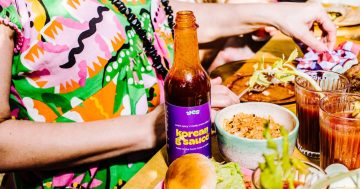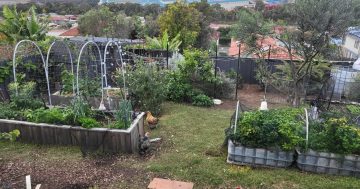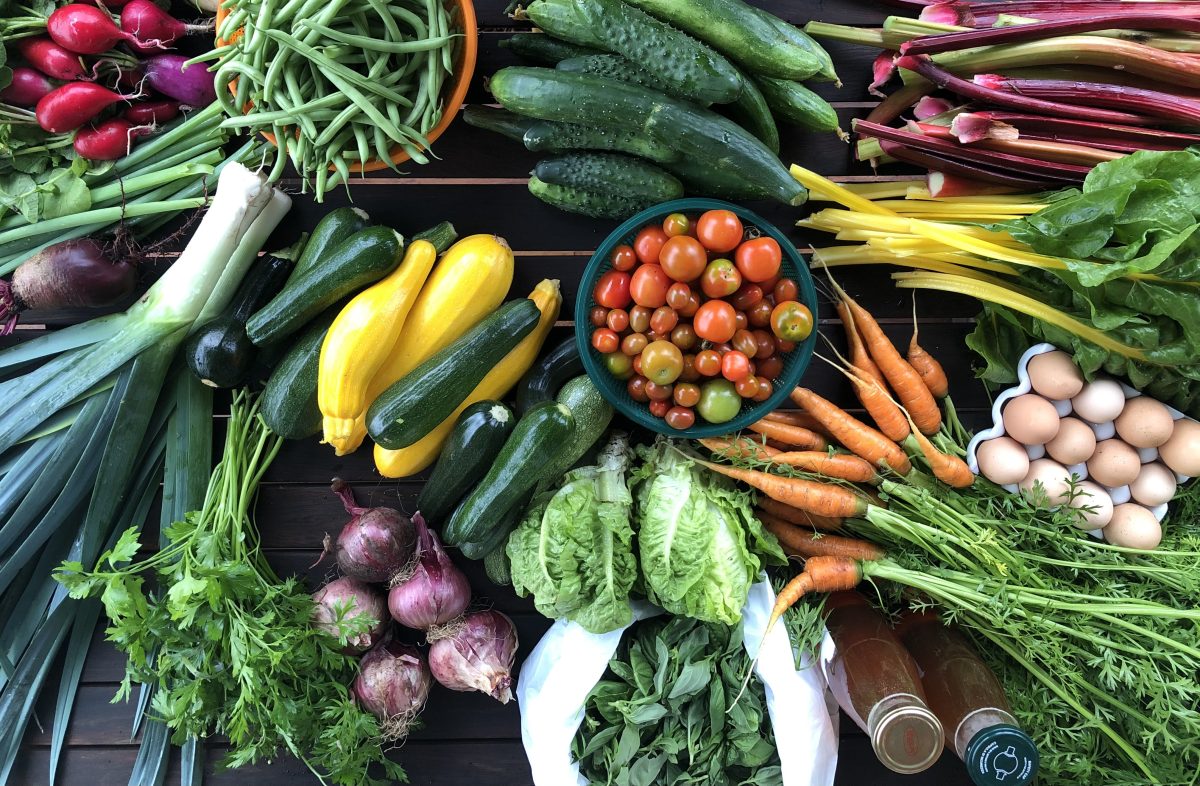
The summer harvest from Suzy’s garden. Photos: Suzy Pickles.
On her quarter-acre block in Bulli, Saltbush Projects co-founder Suzy Pickles grows just about all the fresh fruit and vegetables she needs.
The land is fertile, and Suzy’s crops are prolific. Perhaps a little too prolific. She has just harvested about 30 kg of pumpkin – more than she can cook, bake, freeze or share with her inner circles.
Amid high inflation, it seems like a good problem to have but it’s an all too common one among home growing enthusiasts.
Fortunately, Suzy is part of a collective of local sustainability-minded producers, business owners and food systems experts with a solution to help minimise waste.
Along with Emma Huber of Millers’ Local Bakehouse, Sarah Anderson of Popes Produce, Emma Williamson of South Coast Kimchi Co and Berbel Franse of Healthy Cities Illawarra she runs Food Talks Illawarra.
Just as the name suggests, the group holds talks and events at Millers’ Local Bakehouse where growers, producers and anyone interested in local food systems and challenging their consumer habits can meet, listen, converse and learn from each other.
“It’s something the Food Talks Illawarra group discuss a lot, but we wanted to do something more structured around building advocacy and connections for growers and producers in the area, and building a sort of community around that,” Suzy says.
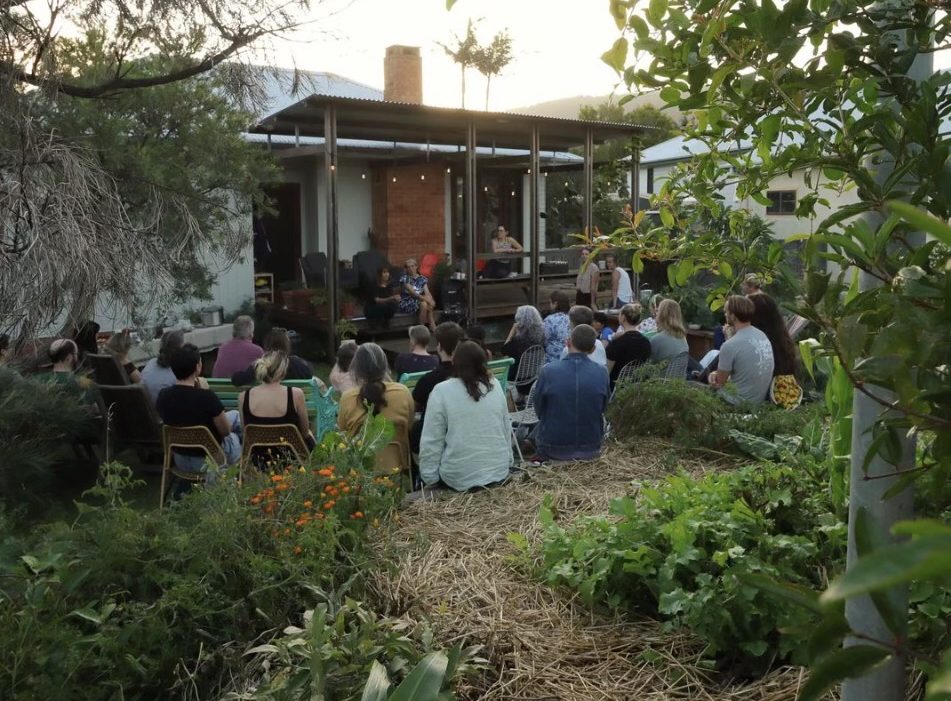
The first Food Talks Illawarra took place in Suzy’s front garden in Bulli.
Suzy is doing a PhD in sustainable food systems in the Illawarra and Shoalhaven regions as part of a greater Australian Research Council Future Fellowships Grant project overseen by Professor Karen Charlton at the University of Wollongong.
She says the Illawarra has plenty of room to grow in this space.
“In my mind, there’s a lot of potential for the integration of urban agriculture as a production solution that can benefit the health and wellbeing of our local community and environment,” Suzy says.
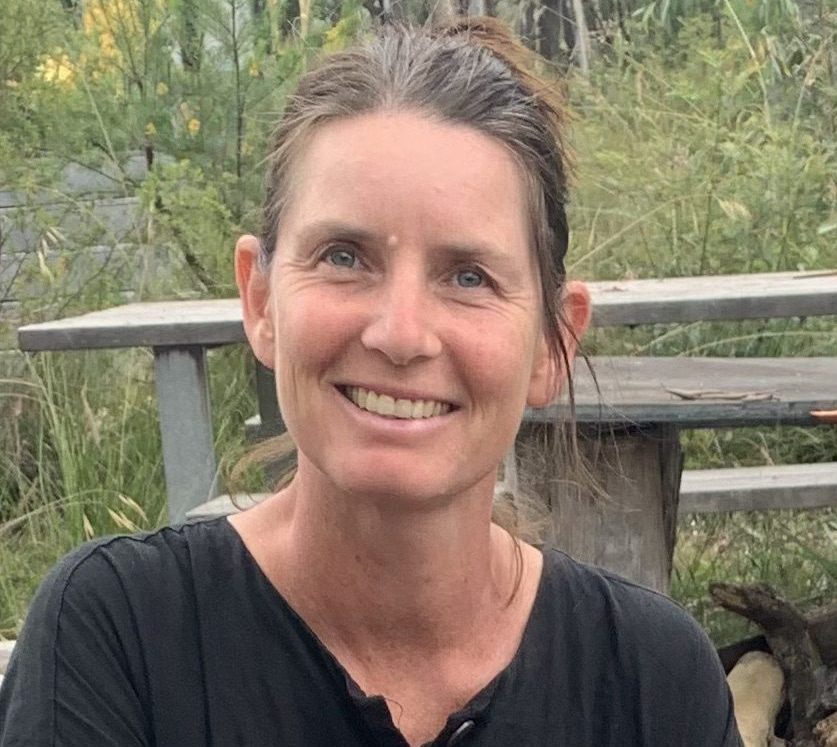
Suzy, who is doing her PhD in sustainable food systems, says the integration of urban agriculture could be one piece of the greater food security puzzle.
The ultimate driver behind Food Talks Illawarra is ensuring food fairness and healthy and resilient local food systems.
This includes finding ways to shore up local producers and challenging the status quo of our distribution systems, which seem to favour long food chains over short.
The group’s latest solution is restarting the Bulli “crop swap”. A fairly common concept in Australia and around the world, crop swaps invite local growers and producers to bring their extra produce, seeds, cuttings, plants, jams, pickles and preserves to swap, with multiple benefits for food security and sustainability.
“I know in Orange there’s a crop swap where people basically do their shopping, they come away with so much,” Suzy says.
“That’s starting to happen at the Port Kembla crop swap. As expectations grow people are inspired to save, cook and grow things to take to the crop swap. So it encourages a community of growers and producers.
“That helps minimise waste, helps those who can’t access food in other ways and creates an impetus to learn and participate.
“It’s also a safety mechanism – you know that if you grow or buy too much, it won’t go to waste. Basically, if you’ve got too much of it, if you’ve had a glut of it, bring it along.”
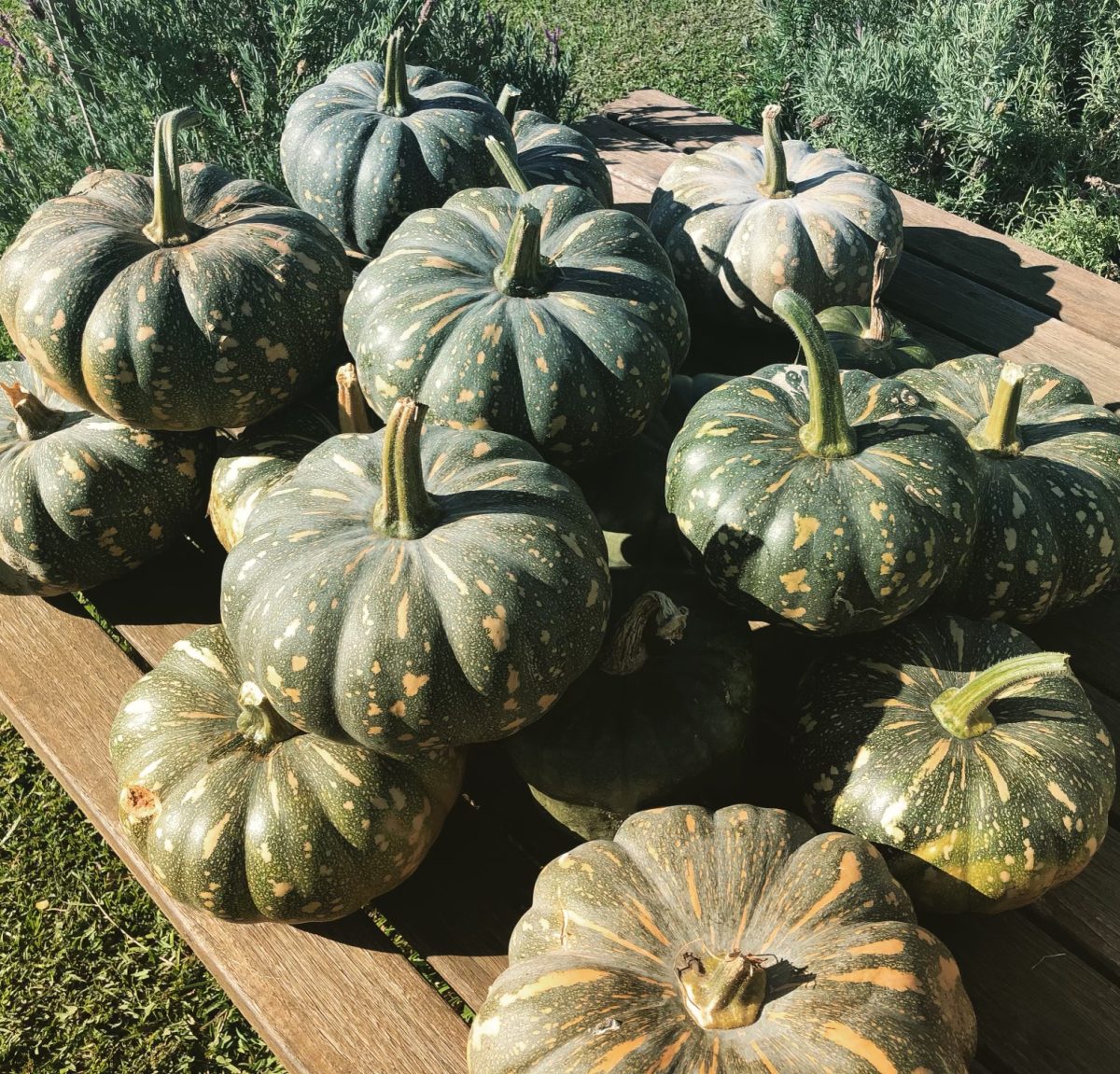
The pumpkins are growing in abundance in Suzy’s yard.
The Bulli Crop Swap will take place on the first Saturday of each month at Millers’ Local Bakehouse from 2 pm.
Participants can turn up at 2 pm with their products, seeds, plants and produce and place them on a trestle table and at 2:10 pm the trade kicks off. No money exchanges hands – everyone just takes what they want using a self-moderated “honour” system.
Though lo-fi and unstructured, Suzy says crop swaps are remarkably civilised affairs.
“If you’ve never been to a crop swap before, you might picture something fierce and competitive where people are grabbing anything they can get their hands on. The reality is quite the opposite. People are respectful and if anything, cautious. More often than not there’s plenty left over at the end, and we’re telling people to take more!”
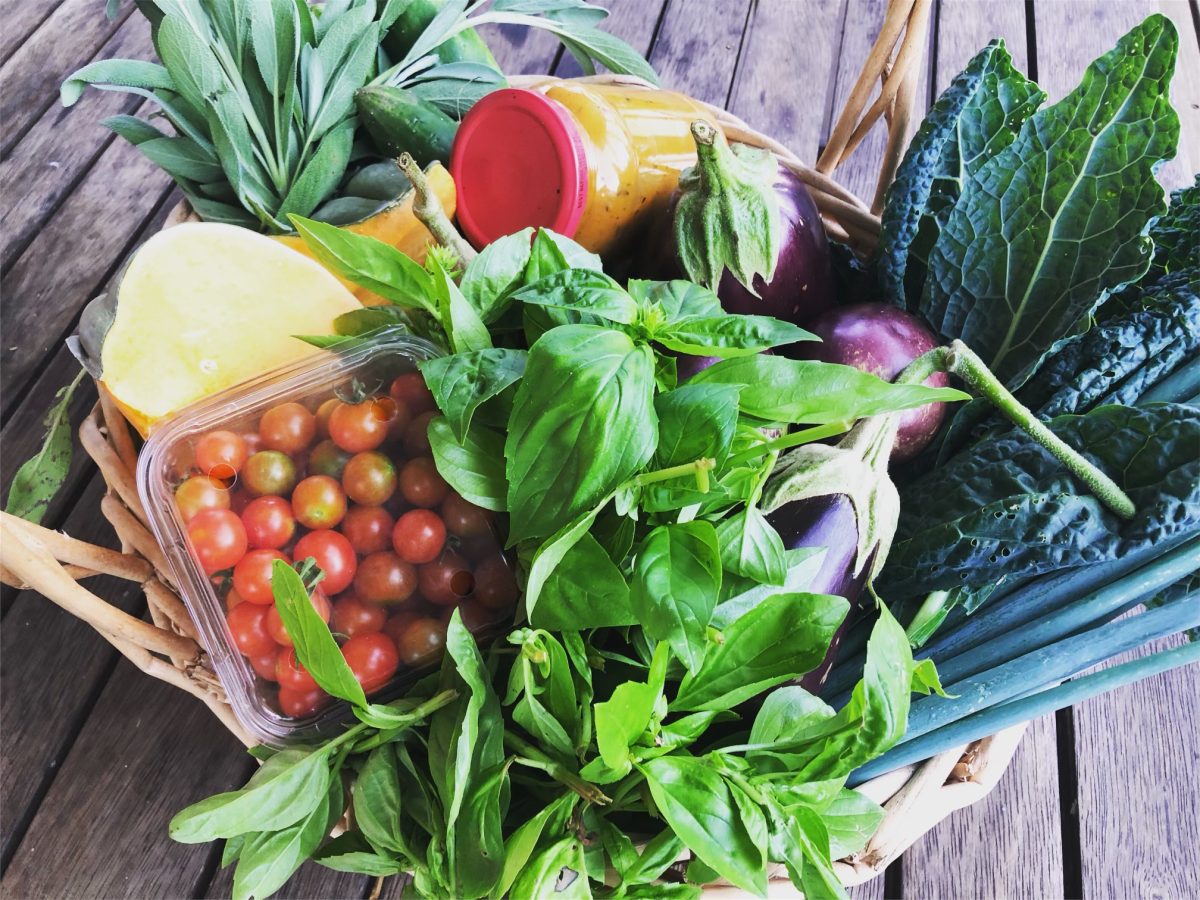
Crop swaps are great places for your excess seeds, plants, cuttings, produce, jams, chutneys, pickles, preserves and other fresh food products. Photo: Suzy Pickles.
But aside from replenishing one’s fridge with fresh-as-it-comes homegrown produce, the community-building and educational elements are equally beneficial.
“I went to the Port Kembla Crop Swap a few months ago. One swapper had a heap of turmeric tubers that were starting to sprout. Hundreds of them. I talked to him about how to plant them and grow them and what microclimate conditions they like,” Suzy says.
“You take home so much more than the produce you swap for.”
The Bulli Crop Swap will take place at 2 pm this Saturday 5 August at Miller’s Local Bakehouse, 249 Princes Highway, Bulli and the first Saturday of each month after.









